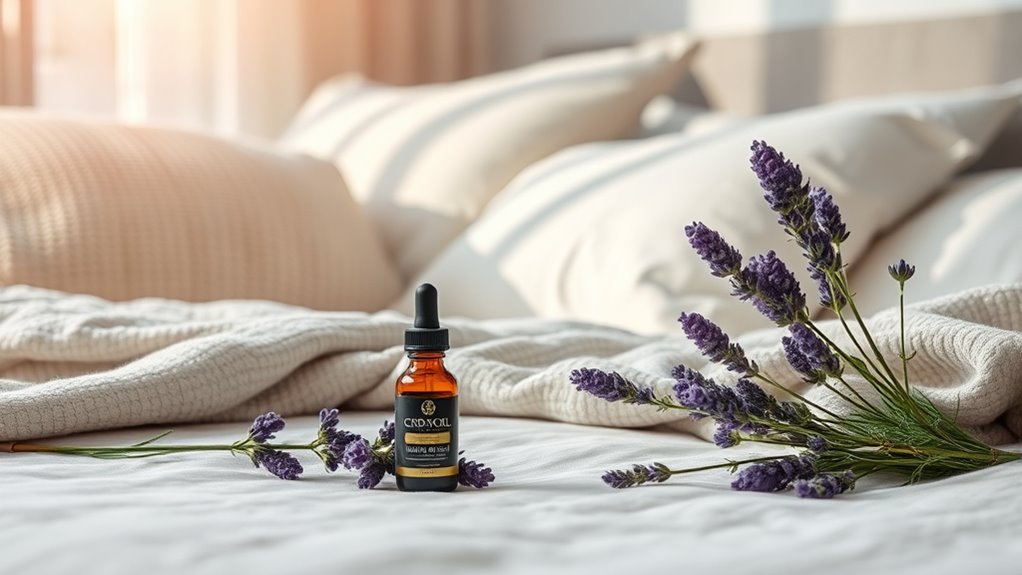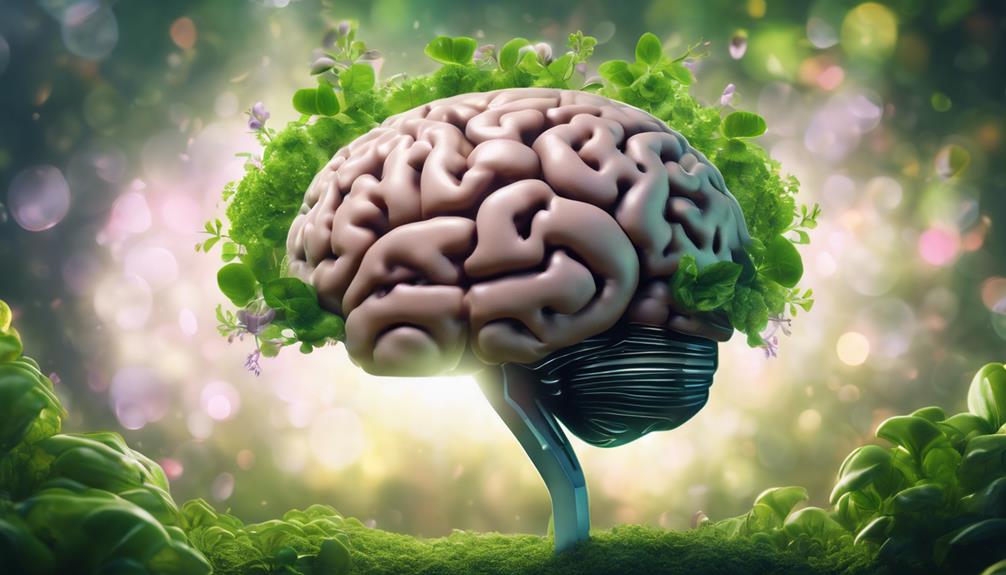Experts say CBD can be a helpful option for managing anxiety and improving sleep, but responses vary. Starting with a low dose, around 10-20 mg, and gradually increasing as needed is recommended. Factors like your weight, metabolism, and product quality influence how it works for you. Be aware of potential side effects and interactions, and always consult a healthcare provider beforehand. Keep exploring to discover how to find the best approach for your needs.
Key Takeaways
- Experts suggest starting with low CBD doses (10-20 mg) to assess individual response for anxiety and sleep issues.
- Consistent daily use and proper dosing can improve CBD’s effectiveness for managing anxiety and sleep quality.
- CBD may help reduce anxiety symptoms and improve sleep, but effects vary based on dosage, body weight, and product quality.
- Consulting healthcare providers is recommended to avoid drug interactions and determine appropriate doses.
- Choosing high-quality, third-party tested CBD products ensures safety and helps achieve desired therapeutic effects.

Many people turn to CBD to help manage anxiety and improve sleep quality. If you’re contemplating trying it, understanding how much to take and what to expect is essential. CBD dosage varies from person to person, depending on factors like body weight, individual response, and the severity of symptoms. Typically, people start with a low dose, such as 10-20 milligrams, and gradually increase it until they notice a difference. Some find relief with as little as 25 milligrams, while others may need up to 100 milligrams or more for significant effects. It’s always best to start low and go slow, paying attention to how your body responds. Consulting with a healthcare professional can help you determine the right CBD dosage for your specific needs, especially if you’re on other medications or have underlying health conditions.
Start low with 10-20mg CBD, gradually increase based on your response for best anxiety and sleep support.
While CBD is generally regarded as safe, it’s important to be aware of potential side effects. Common ones include fatigue, dry mouth, and changes in appetite or mood. Some people report feeling drowsy or a bit lightheaded after taking CBD, which is why starting with a small dose is advisable. Side effects are usually mild and tend to resolve on their own, but they can become more noticeable if you take high doses or combine CBD with other sedatives or medications. It’s also worth noting that CBD can interact with certain drugs, so checking with your healthcare provider before adding it to your routine is a smart move.
Another factor to consider is the quality of the CBD product you choose. Not all products are created equal, and impurities or inaccurate labeling can affect both safety and effectiveness. Look for products that have been third-party tested, with transparent labeling that clearly states the CBD concentration. Proper dosing also depends on the method of consumption—whether you’re using oils, capsules, or edibles—as absorption rates differ. Consistency is key; taking CBD regularly at the same time each day can help you better gauge its effects and find the ideal dose for anxiety relief and sleep improvement.
Ultimately, CBD can be a helpful supplement if used responsibly. Starting with a small dose, being aware of potential side effects, and consulting with healthcare professionals can ensure you use it safely and effectively. Keep track of your response, and adjust your CBD intake gradually to find what works best for your anxiety and sleep needs.
Frequently Asked Questions
How Long Does It Take for CBD to Improve Sleep Quality?
You might start noticing improved sleep within a few days to a couple of weeks, depending on your timing effectiveness and dosage consistency. If you take CBD regularly at the same time each day, it helps your body adjust and may speed up the process. Keep in mind, individual responses vary, so patience is key. Staying consistent and monitoring how your body reacts can help you find the right timing for better sleep.
Are There Any Long-Term Effects of CBD Use for Anxiety?
Imagine you’ve been using CBD for anxiety over months. While many find it helpful, you might wonder about long-term safety and chronic effects. Currently, research is limited, but some studies suggest minimal adverse effects with prolonged use. However, it’s crucial to take into account potential interactions and individual responses. Consulting a healthcare professional ensures you understand the risks and benefits, helping you make informed decisions about long-term CBD use.
Can CBD Interact With Other Medications for Sleep or Anxiety?
You should know that CBD can interact with other medications for sleep or anxiety through drug interactions, potentially affecting how your medicines work. It’s important to follow dosage guidelines carefully, as higher doses may increase interaction risks. Always consult your healthcare provider before combining CBD with other treatments to guarantee safety and effectiveness, especially if you’re on medications for sleep or anxiety.
What Is the Optimal CBD Dosage for Anxiety Relief?
Think of finding the right CBD dosage like tuning a fine instrument—you need to adjust based on your unique response. While dosage guidelines suggest starting low, around 10-20 mg, then gradually increasing, individual responses vary. To get the best relief for anxiety, monitor how you feel and consult a healthcare professional. Remember, patience and personalization are key to discovering your ideal CBD dosage.
Is There a Difference Between CBD and Hemp Oil for Sleep?
You might wonder if there’s a difference between CBD and hemp oil for sleep. CBD products focus on specific CBD potency and are often made through specialized hemp extraction methods, which target cannabinoids precisely. Hemp oil, on the other hand, may contain lower CBD levels and more fatty acids. So, if you’re seeking sleep aid, check the CBD potency and extraction process to guarantee you’re getting quality, targeted relief.
Conclusion
While CBD might be your ticket to calmer nights and peaceful days, remember it’s not a magic wand. Think of it as a gentle breeze guiding your worries away, helping you find your calm amidst life’s storm. Always chat with your healthcare provider before diving in, so you can navigate this journey safely. With the right approach, CBD could become your trusted companion, turning restless nights into tranquil dreams and anxious days into moments of serenity.










